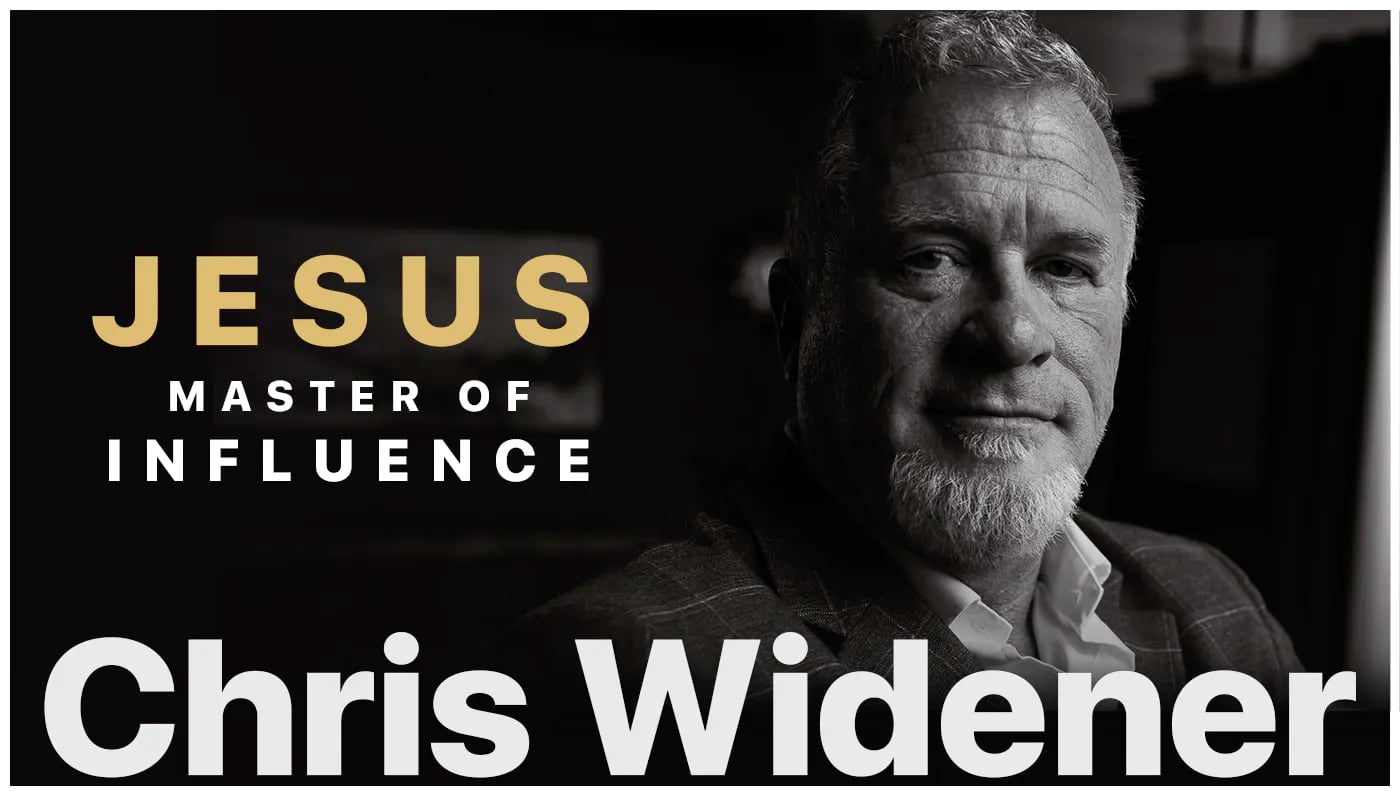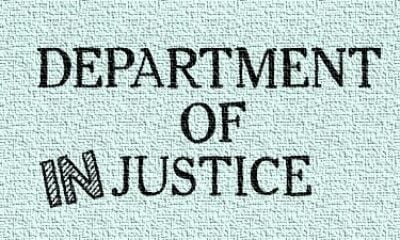

News
Thoughts On Vetting the Military from a Former Military Officer
“When Willing To Die For Your Country Is No Longer Enough.”
I do not like the word “offended.” I don’t believe in it because it gives too much power to the person trying to degrade you, and as a former Military Officer who served in combat, I find it impossible to be offended. So when people say that they are offended that the new regime is vetting National Guard troops, I shake my head, because I believe the word they are looking for is disgusted.
To vet National Guard Troops for inauguration detail is to admit that the new regime doesn’t trust in the tradition of the military, nor does it have any idea what the Military or its personnel are about. Everyone who joins the military is different; they come from different backgrounds, have different life experiences, different fears, and different political beliefs. The one thing they all share is a willingness to get their head blown off to serve their country that they love.
The men and women who are being vetted for the inauguration detail are essentially being told that their willingness to sacrifice their lives for their country is no longer enough; they also need to give up the one piece of individuality they are allowed to keep when they put on the uniform; their private opinion.
Throughout our history, proud American soldiers fought side by side against our nation’s foes, and never once was it required that they thought a certain way in order to fulfill their duty. Soldiers of all political stripes crossed the Delaware on Christmas, stormed Normandy, liberated Dachau… they endured the harshest conditions in the name of defending their country, from the very beginning until this very day, and they never asked for anything in return.
They felt the sadness and isolation that comes with being thousands of miles away from everything they have ever known, wondering if people are thinking of them or just going on with their lives like normal. They have been shot at and blown up; some have been killed or seriously injured. Some lost limbs, some lost sight, some watched as their best friend was consumed by an enemy explosion.
I can guarantee you that every person who has ever put on the uniform has found themselves in situations they didn’t want to be in, following orders from someone they didn’t care for or agree with, but they did it anyway. That’s the difference between them and the left; the left operates 100% on emotion. The idea of protecting a leader that they don’t agree with is unreasonable and vile in their minds. There’s no greater good, there’s no concept of duty, there’s no concept of respect for our country; it’s all about their feelings. If said leader said something to hurt their feelings, they see no reason to protect them. The opposite is true for our men and women in uniform, and that’s what makes them special. That is why they are willing to lose their lives and subject themselves to misery and loneliness and danger. They don’t give a damn about whether or not they share the same political opinions with their leaders, all they care about is the mission at hand.
So while the leftists these days will find themselves overwhelmed by the idea of protecting a leader with differing opinions, retreating to a safe space where they can stew in their hate and be appalled that another human being has the audacity to think differently, the American soldier will put any and all personal feelings aside, and accomplish their mission to the best of their ability.
The American soldier knows that their feelings are insignificant when put up against the importance of the mission. So if you want to yank American heroes away from a mission because they don’t think a certain way, you are revealing a sad ignorance of the Military and its soldiers. The National Guardsman relieved of inauguration duty won’t retreat to a safe space; they won’t run to social media and cry about how unfair it is, and they probably won’t give it a second thought; They will go home with their heads held high, and prepare for the next mission.
We'd love to hear your thoughts about this article. Please take a minute to share them in the comment section by clicking here. Or carry the conversation over on your favorite social network by clicking one of the share buttons below.
Join the conversation!
We have no tolerance for comments containing violence, racism, profanity, vulgarity, doxing, or discourteous behavior. Thank you for partnering with us to maintain fruitful conversation.
After watching with over a hundred others the newly released movie, Civil War, I left the theater stunned, and I was not alone. Was it a good movie? Just a deeply unsettling one! Could it really happen? You don’t even want to imagine it! But with Biden’s assault on America continuing and Trump reemerging as the favored GOP candidate, the American division is growing. More and more citizens are getting angrier as their standard of living is in jeopardy and illegals are getting benefits citizens can only dream of.
Spoiling the movie’s plot is never appropriate, but when Western forces from Texas, Florida, and even California take on the elected President, the country is left in a civil war. We watch as desensitized media professionals cover the death of hundreds of American citizens. To the film’s media, the war is just a once-in-a-lifetime story that deserves to be captured one picture at a time. After all, it’s the media’s job. They are just feeding citizens what they want—blood, gore, winners, and victims. What would happen if America descends into such chaos? This movie provides one disturbing view, one that, God help us, must never happen.
One thing is clear, when a country loses trust in its leader’s ability to preserve their cherished freedoms and ensure equal treatment under the law, even insurrection seems somehow possible. That is a nightmare no American should have to entertain, but more and more Americans seem to be losing hope in the future of our country. They don’t trust elections. Many don’t even like the Presidential choices presented to them.
The Founding Fathers valued freedom enough to unleash a revolution against the greatest power at the time. Enough citizens joined them in securing what most at the time believed impossible, independence. Yes, insurrection hatched our beloved America. Belief in equal rights and freedom are powerful forces that have always driven patriotic Americans to action.
Even with our differences, most Americans believe in property rights, voting rights, law enforcement to keep us safe, freedom of speech, and personal responsibility. Unfortunately, more and more Americans feel these values are in question, and they are not sure America can be saved!
Many Americans no longer even believe that elections will produce a lawful winner. They don’t trust the voting machines. They want paper ballots that can be counted. They don’t believe multiple days are needed. Hasn’t one day of voting always been enough? They want required IDs and signed mail-in ballots. They fear ballot harvesting is just another name for ‘manufacturing” all the votes you need to ensure a fraudulent victory. Are American fair elections no more!
Many no longer believe that the enforcement of law is fair and sure. While former President Donald Trump has been charged with multiple “crimes,” President Joe Biden’s similar actions aren’t even charged. Hunter Biden’s influence peddling with money set aside for the “Big Guy” are not even covered in the mainstream media. The Dept. of Justice is quick to charge Trump, but with the Bidens, we hear nothing but crickets. People who commit crimes are being let go instead of being held accountable. Is American law and order no more!
Under President Trump, our border was finally more under control. Under Biden, his open border has been continually flooding our country with illegals from around the world. They come expecting benefits at the expense of taxpaying citizens. Illegals overwhelm services in our urban areas. Legal immigrants had to wait years to enter and are fuming at this invasion of illegals rushing to the front of the line and expecting to be accepted, supported, and allowed to become citizens. Is America’s secure border no more!
We thought in America, your home was your castle. If you work to buy the home of your dreams, you were sure that your property rights were secure in a community that you loved. But today, squatters are taking over vacant homes and fending off owners who want them to leave their property. Illegals are being told to come to America, find an empty home, and move in. In the name of equity, governments are rezoning the suburbs and requiring the building of low-income housing where it is not wanted. Are America’s property rights no more!
Do you believe America is lost? Do you believe nothing can reverse this march to chaos? Do you believe that it is time to buy your own guns to protect your family when the government won’t? Is a civil war coming? If you answered “yes” to any of these questions, you are in danger of losing the optimistic attitude that has characterized Americans for two centuries. This is our country. This is not the time for surrender. It’s time to fight to preserve America the best way you can—vote for candidates who promise to preserve the rights you value most.
Your vote does matter. There are no perfect candidates, but the party positions make a difference in this critical election. If you want law and order, secure borders, fair elections, property rights, and a return to personal responsibility, there is only one party to support. Vote for every GOP candidate you are given the opportunity to support, or it may very well be America no more!
After Iran launched an extensive drone and missile attack against Israel, Iran’s president vowed to completely destroy Israel if it proceeds with a military response. In plain language, Israel is not allowed to react as any other country would after being attacked. That seems to be the opinion of many world leaders, including Joe Biden.
That’s like saying that the US had no right to retaliate after Japan’s attack on December 7th. This absurd policy applies only to Israel. If Iran launched missiles against the US, imagine what we would do in response. (Of course, with a wimp in the White House, there is a good chance that we would do nothing.)
On the evening of 13 April 2024, Iran launched hundreds of deadly missiles against various sites in Israel. Iran’s attack was presumably in retaliation for an Israeli strike on the Iranian consulate in Damascus. Israel’s justification for its attack is that the Iranian consulate has been the center for Iran’s terrorist activities throughout the Middle East. The consulate “did not have diplomatic immunity,” according to attorney Alan Dershowitz, “because it was not being used for diplomatic purposes; it was being used to plan military attacks against Israel.”
With assistance from the US, the UK, neighboring Jordan and other nations, Israel successfully intercepted nearly all the missiles and drones. Despite the lack of damage, Iran’s intent clearly was to inflict serious harm. Iran underestimated Israel’s ability to defend itself. Now Iran’s president Ebrahim Raisi has vowed to completely destroy Israel if it proceeds with even the “tiniest invasion” of Iran.
Israeli Prime Minister Benjamin Netanyahu said his country would be the one to decide whether and how to respond to the Iranian attack, brushing off calls for restraint. “The state of Israel will do whatever is necessary to defend itself,” Netanyahu said. “Everything is on the table right now,” said a source in the Israeli government. Israel possesses an impressive range of high-tech weaponry, including nuclear weapons and F35 fighter planes that can overwhelm Iran’s outmoded air force.
“Iran declared war on Israel by sending more than 300 bombs in Israel’s direction, aimed at civilian as well as military targets in Jerusalem and other locations,” said Alan Dershowitz. “As a matter of law and morality, Israel is entitled to respond to this act of war by overwhelming, even disproportionate, force against Iranian military targets.”
Biden has not supported Dershowitz’s argument. Instead, he has “sent a clear message to the mullahs that there would be no consequences for their rogue actions,” said Lisa Daftari, a leading Iranian-American expert. “What we are seeing is a manifestation of weak policies and the ayatollah’s correct read on American foreign policy.” Biden’s policy, said Yaakov Katz, a leading Israeli security expert, “does not work and the world’s strategy of diplomacy and sanctions is not effective. The world needs to shift gears and change the way it has tried to confront Iran.”
Former Director of National Intelligence John Ratcliffe agreed that the Biden administration’s tepid policy has emboldened Iran. “Joe Biden’s reaction to that hit in Damascus sent a message to Iran and to the rest of the world that the US was not with Israel, that the US was reluctant to support Israel on this. And I think that emboldened Iran. And as one of the former intelligence officials in Iran said to me, with friends like Joe Biden, Israel doesn’t need more enemies.”
Biden has warned Israel not to take action, said Alan Dershowitz. “Biden wants Israel simply to proclaim victory and not respond appropriately. This will only encourage Iran to take further military action against Israel either directly or through its numerous proxies,” Dershowitz warns. “If the [Iranian] regime felt endangered, it could attack Israel with its nuclear weapons, as it has threatened to do. That is an important reason why Iran’s potential nuclear arsenal should be destroyed before it can be deployed.”
“This is the time to act,” Dershowitz concludes. “Iran has provided Israel and the United States with a complete legal and moral justification for destroying its nuclear weapons program and for beginning the process toward regime change. If we do not act now, it may be too late.”
Ed Brodow is a conservative political commentator and author of two No. 1 Amazon Best Sellers, AMERICA ON ITS KNEES: The Cost of Replacing Trump with Biden, and THE WAR ON WHITES: How Hating White People Became the New National Sport.












